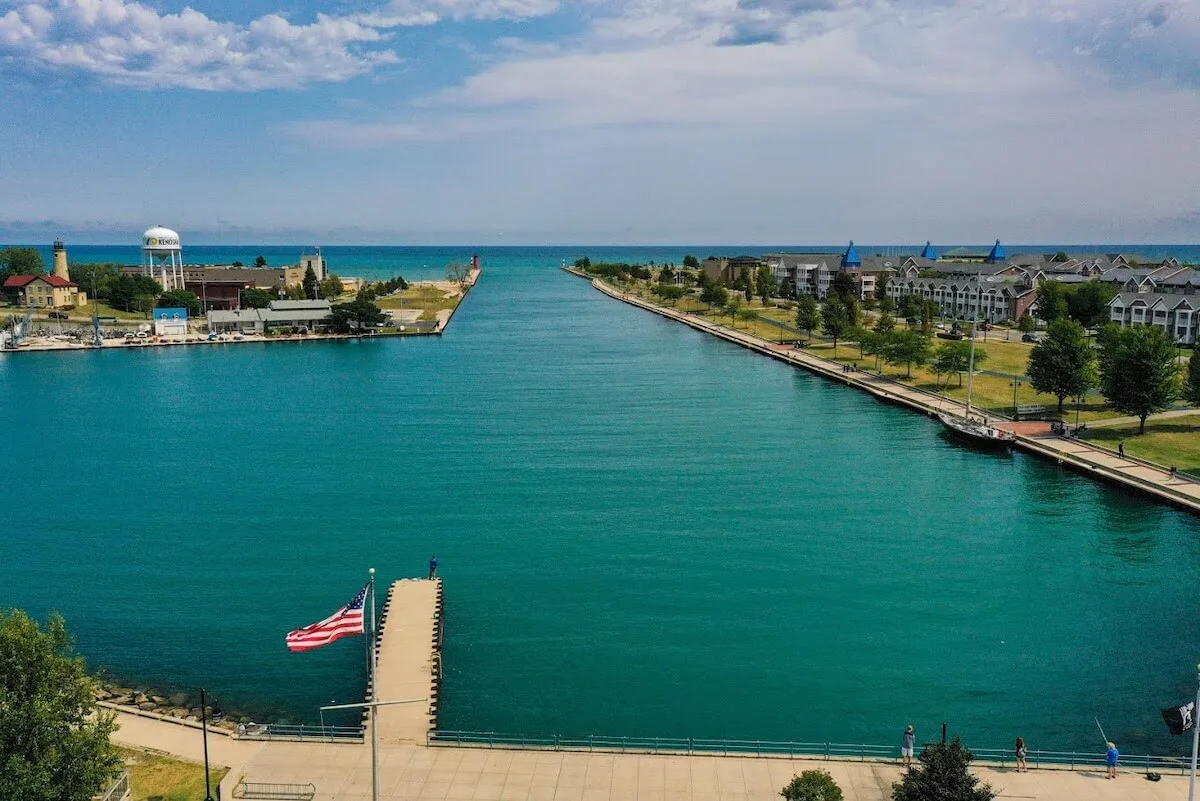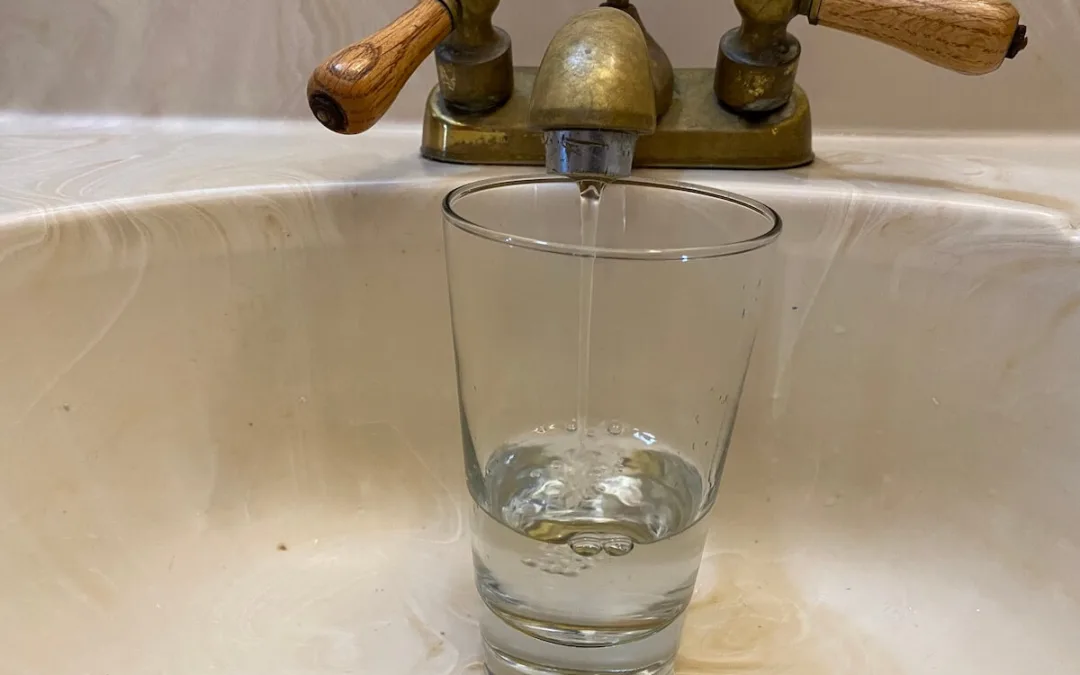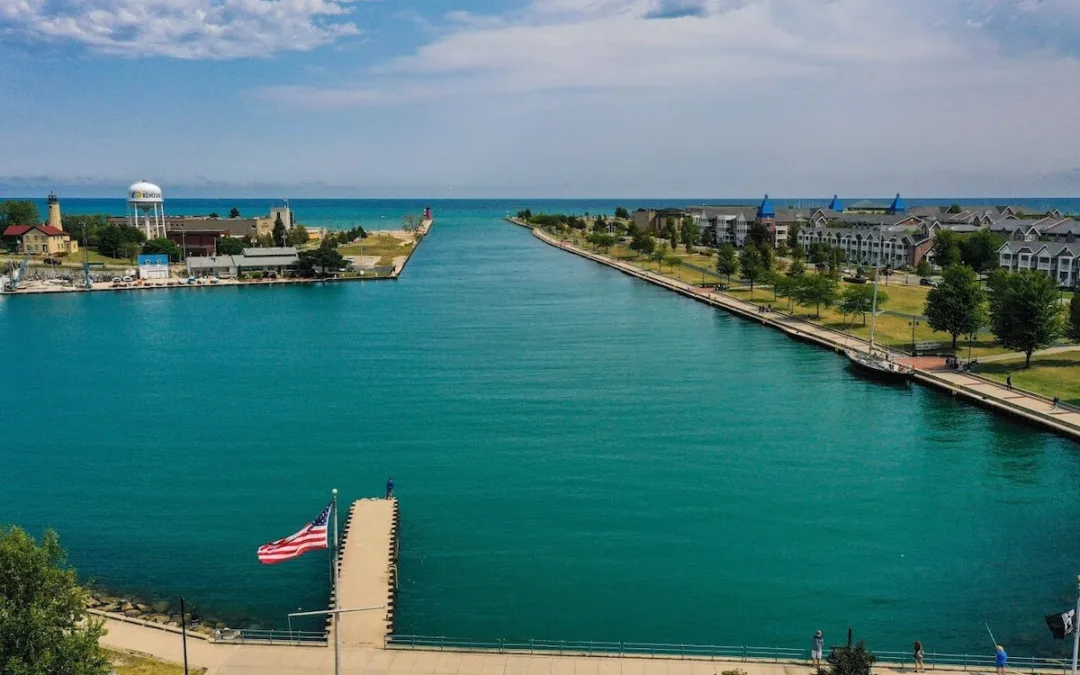
#image_title
#image_title
A survey of 4,500 residents of lands bordering the Great Lakes reveals 90% say it’s important to protect the waters.
For decades, the Great Lakes were fouled by industrial waste, raw sewage, and other pollutants, endangering the largest freshwater system in the world and prompting significant cleanup efforts of those five lakes since the passage of the Clean Water Act in 1972 and other environmental legislation.
Those efforts have been largely successful, lake quality experts in northern Wisconsin said. In some cases, that work has included the restoration or even improvement of nearby wetlands and other habitat. However, new environment-related concerns have surfaced in recent years, they said, spurring worries about the lakes’ water quality once again worsening.
Lake temperatures have warmed, endangering aquatic life and in some cases prompting algae blooms. Heavy rainfalls and increased flooding scientists attribute to climate change are forcing increased sediment and pollution to those waters. Lake levels are fluctuating far more than in past years, with high water levels leading to soil erosion and property damage.
Algae blooms that formed on Lake Superior earlier this year were a sign of growing water quality issues, said Deanna Erickson, director of the Lake Superior National Estuarine Research Reserve in Superior. She and others there study Lake Superior and the St. Louis River, the main waterway that feeds into the lake.
“Previously, we didn’t really think we had to worry about that,” Erickson said. “Algae blooms on Lake Superior can be alarming as we look to other bodies of water that have had those kinds of impacts for longer, and how those bodies of water are doing. We see that [and think], ‘Ooh, that can not go well.’“

Not Just Expert Concerns
Erickson isn’t alone among water quality experts and other residents of far northern Wisconsin who are concerned about Lake Superior. A survey of people living near that body of water and the four other Great Lakes (Huron, Michigan, Eerie, and Ontario) shows most of them want to protect those waters, and that they support government funding to improve water quality as they grow increasingly concerned about them.
The telephone survey by Oraclepoll Research of Canada asked questions of about 4,500 people (280 of them from Wisconsin, which borders Lake Michigan and Lake Superior) living in eight states and the Canadian province of Ontario that border the lakes. The poll revealed that 90% of respondents said it’s important to protect those waters, and 70% are concerned about the lakes, an increase of 17% since a similar survey in 2015.
RELATED: How Climate Change Is Causing Harmful Algae Blooms on Lake Superior
More than half (56%) of people who responded to the survey said they are willing to pay an extra $5 or more on their water bill to help improve the lake’s water quality. Most survey respondents also said they support government policies and funding for water quality improvement measures.
The survey was conducted for the International Joint Commission, an independent adviser to the US and Canadian governments about Great Lakes issues. Similar surveys were completed in 2015 and 2018.
‘We’ve Got to Protect It’
Tricia Spellberg frequently hikes along Lake Superior and has camped along its shores and paddled in its waters. The resident of rural Washburn said she worries that climate change is adversely impacting the lake and worries about its water quality worsening in the future, and she supports government funding to protect it.
“A lot of us up here in northern Wisconsin, we love that lake and live here in part because of it,” she said. “We’ve got to protect it.”
Despite the investment of nearly $4 billion in lake improvement projects under that program in the last decade, including $405 million in Wisconsin, 60% of people surveyed feel there aren’t enough policies in place to protect the Great Lakes. The bipartisan infrastructure bill signed into law last month by President Joe Biden includes $1 billion for the Great Lakes Restoration Initiative, a federal program to clean up the Great Lakes.
The Great Lakes play a vital role to Wisconsin citizens, including native nations, and continued investments and other actions must be taken to protect those waters, said Peg Sheaffer, communications director for Midwest Environmental Advocates.
“Temperatures are rising, precipitation patterns are shifting, lake levels are changing, and extreme rainfall events are becoming more frequent,” she said. “Wisconsin’s regulatory programs—from stormwater management, to shoreline development, to permitting for large industrial farms—must be updated to account for this new reality.”
Despite challenges, Erickson said Lake Superior is “really in good shape” and taking proactive steps to protect the lake now can prevent future damage. Scientists continue to study the lake and how it will be impacted by climate change, she said, action necessary to properly monitor the lake for harmful environmental impacts.
“We really have an opportunity here to preserve this lake, rather than spend a lot of money and work really hard after the fact to bring it back,” she said. “We need to provide the funding and the science to do that work.”
Politics

The Republican war on Medicare raises the stakes in 2024
Nearly 1.3 million Wisconsinites rely on Medicare benefits—benefits they spent decades paying into, with the promise that the program would be there...

Opinion: Donald Trump’s attacks on abortion rights puts politicians between doctors and their patients
In this op-ed, UW-Madison Medical Student, Charlotte Urban, discusses Trump’s attack on abortion rights and health care, emphasizing the importance...
Local News

Where to buy farm-fresh eggs in western Wisconsin
There’s nothing better than eggs from a local farm. Of course, they taste fresher and last longer, but the best part is that you’re supporting a...

13 local bookstores every Wisconsin reader should know
Whether you’re sitting outside enjoying beautiful weather or curling up inside during a snowstorm, it’s always a great time to crack open a book....



